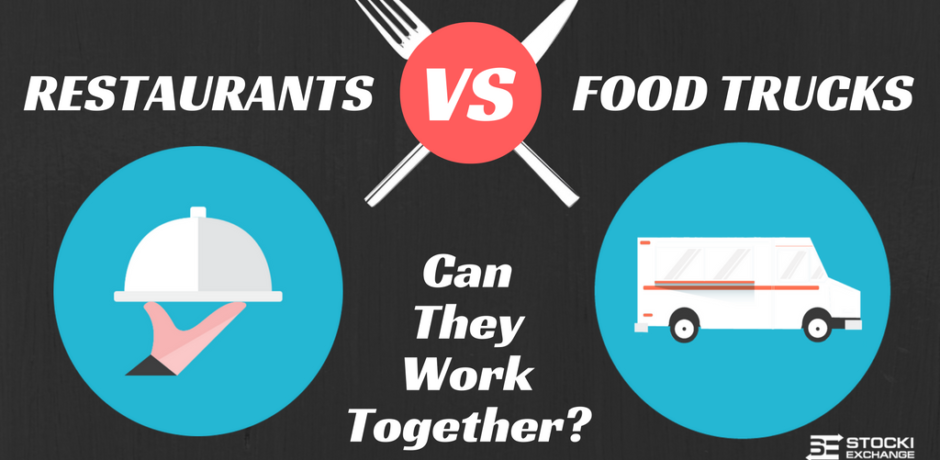Our Blog
The food truck movement has been picking up speed for close to decade now. Food trucks have seen a revenue increase of 12.4% over the past five years as they’ve grown into a $1.2B industry per StatisticBrain. While consumers are ecstatic about the unique eats they can get their hands on, many restaurant owners are anything but.
Meshe Armstrong, co-owner of Restaurant Eve in Alexandria, Virginia penned a letter to the editor of the Alexandria Times hitting on many of the key issues brick-and-mortar restaurant owners have with food trucks today. The excerpt below does a nice job of summing up the way many restaurant owners around the country feel:
Who will regulate the unscrupulous? Who will prevent a coffee truck in front of a coffee house? Will a bakery truck be justified to park in front of my bakery? I sweep the street, plant the flowers, pay litter taxes and then someone who buys a cupcake from a truck can throw their wrapper in my litter box and proceed to use my bathroom. Will the city then abate some tax or provide community toilets? Will the city need to employ more health department inspectors on my tax dime to ensure proper inspections? Will I be able to speak at a hearing so I know their parking intentions as restaurants must? Are you going to forget about the mom and pop who put down roots in Alexandria before food truck fever struck?
Armstrong makes some very real arguments. The city of Chicago, for example, has recently come under fire from restaurateurs and food truck owners for their legislation regarding standing time and proximity to brick-and-mortar establishments.
My perspective is that the food truck movement is an chance for brick-and-mortar establishments to grow. Complaining doesn’t change the game, but learning from your competition does.
Here a few ways I believe brick-and-mortar restaurants can work with food trucks:
Buy Your Own Truck
If you can’t beat ‘em, join ‘em. 19 percent of fast casual restaurants say they are very or somewhat likely to launch a food truck in the next year or two, according to the National Restaurant Association. Here’s a great piece from Restaurant Engine on how to use a food truck to supplement your restaurant. Per StatisticBrain, you can get the average food truck in the U.S. up and running for around $90k.
Partner on a Signature Dish
This is a two way street. If you’re known for your potato salad, partner with a sandwich truck to have them offer your dish as a side. Alternatively, if the truck has a signature dish that might compliment your offerings, see if they would be interested in having you serve it. Comarketing can go a long way in helping both parties out here.
Ticketed Dinners
Many food trucks live and die via social media. Their ability to broadcast their location to a band of loyal followers keeps them afloat as they move around town. Why not invite them into your establishment for a ticketed dinner that you copromote? You get to take advantage of their social presence, make new industry contacts and pull diners in that may not have even been aware of your venue.
Host a Chef Swap Competition
Consider buddying up with a food truck and doing a chef swap competition. Invite them to your venue and have your chef put his or her spin on their food, cooking in their truck. They do the same in your kitchen. Invite multiple trucks if you really want to pull in a crowd.
Create your own Street Food Lunch Menu
Creativity is the name of the game for many food trucks. The novelty of trying something unique for an affordable price is what pulls consumers in. Why not give it a try? You can’t be so in love with what you do that you’re not willing to try new things.
So what are your thoughts? I would love to hear from those of you out there running your own brick-and-mortar establishments. Have you considered working with food trucks or even starting your own? Send me an email at John@StockiExchange.com or contact me here.


